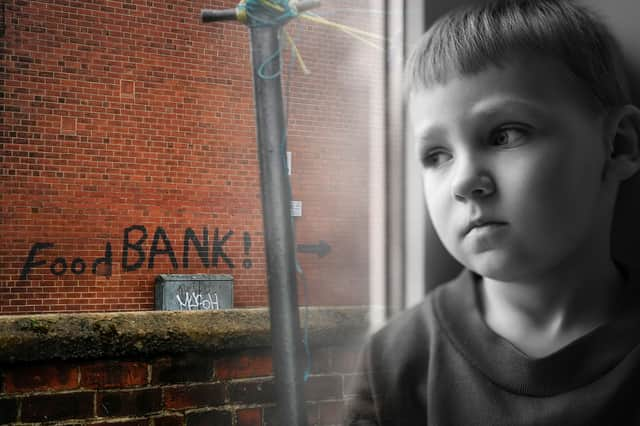It’s a sad state of affairs: Destitution is alive and well in the UK but how have we arrived here?
and live on Freeview channel 276
It is a heart-breaking state of affairs leading to the chief executive of the Joseph Rowntree Foundation Paul Kissack accusing the government of failing to act. He said: "Such severe hardship should have no place in the UK today - and the British public will not stand for destitution on this scale. The government is not helpless to act: it is choosing not too. Turning the tide on destitution is an urgent moral mission, which speaks to our basic humanity as a country, and we need political leadership for that mission. That is why we are calling for clear proposals from all political parties to address this challenge with the urgency it demands."
Child poverty and child and family destitution is not inevitable, it can be solved if action is taken to reduce it at the national and local levels. Every child in the UK not only deserves an equal opportunity to grow not in poverty and destitution but to thrive. They have the right to these basic things, yet children are being denied that right.
Advertisement
Hide AdAdvertisement
Hide AdThe harms and wounds of growing up in poverty can last a lifetime which is why it is vital we act now. More needs to be done to ensure that all families have enough money and other resources such as adequate housing to bring up their children at a decent level to help their children survive and thrive. All children deserve nothing less.


The increasing levels of poverty for children has not been a drip drip effect but a deluge year on year that has been having a dreadful impact upon their health, wellbeing and life opportunities. In my work with children and young people I am daily, like many others, supporting children and families experiencing severe poverty and destitution.
Increasing reliance on schemes and programmes for families who do not have enough food to eat is now not an exception but the norm and this happening in this twenty-first century here in Britain. The recent study released by the Joseph Rowntree Foundation confirms what we as practitioners know on the ground, that children are experiencing destitution that has almost tripled since 2017.
The definition of destitution is not being able to meet the basic living needs of being fed as well as keeping warm and clean. This includes access to clothing, heating, shelter, food and other necessities for life. What makes this all the more worrying is that the United Kingdom is a long-time signatory to the UN Convention on the Rights of the Child.
Advertisement
Hide AdAdvertisement
Hide AdSo we as a signatory state have committed ourselves to protect children’s rights to life, survival and development, freedom from violence, abuse and neglect, yet despite this we are now experiencing significant numbers of children living in destitution. I have not seen such levels of child poverty in communities since the early 1980s.
It is devastating for families unable to keep their children warm in the cold weather. They have to find heat sanctuaries in the community to take their children during day times. If they are lucky, their children might be offered a sandwich or a hot meal too.
Knowing this, in the places I work supporting children and families, we ensure that we meet these needs, along with sourcing and providing suitable clothing for them and access to other basic life requirements needed to survive. We help children and families to stay in their homes and have their needs met there - rather than waking up on the street. We shouldn't have to but we do. It doesn't have to be this way but it is. Government could change it all but they don't so, instead, we are witnessing our youngest generation living in a poverty that should be unimaginable.
Comment Guidelines
National World encourages reader discussion on our stories. User feedback, insights and back-and-forth exchanges add a rich layer of context to reporting. Please review our Community Guidelines before commenting.
